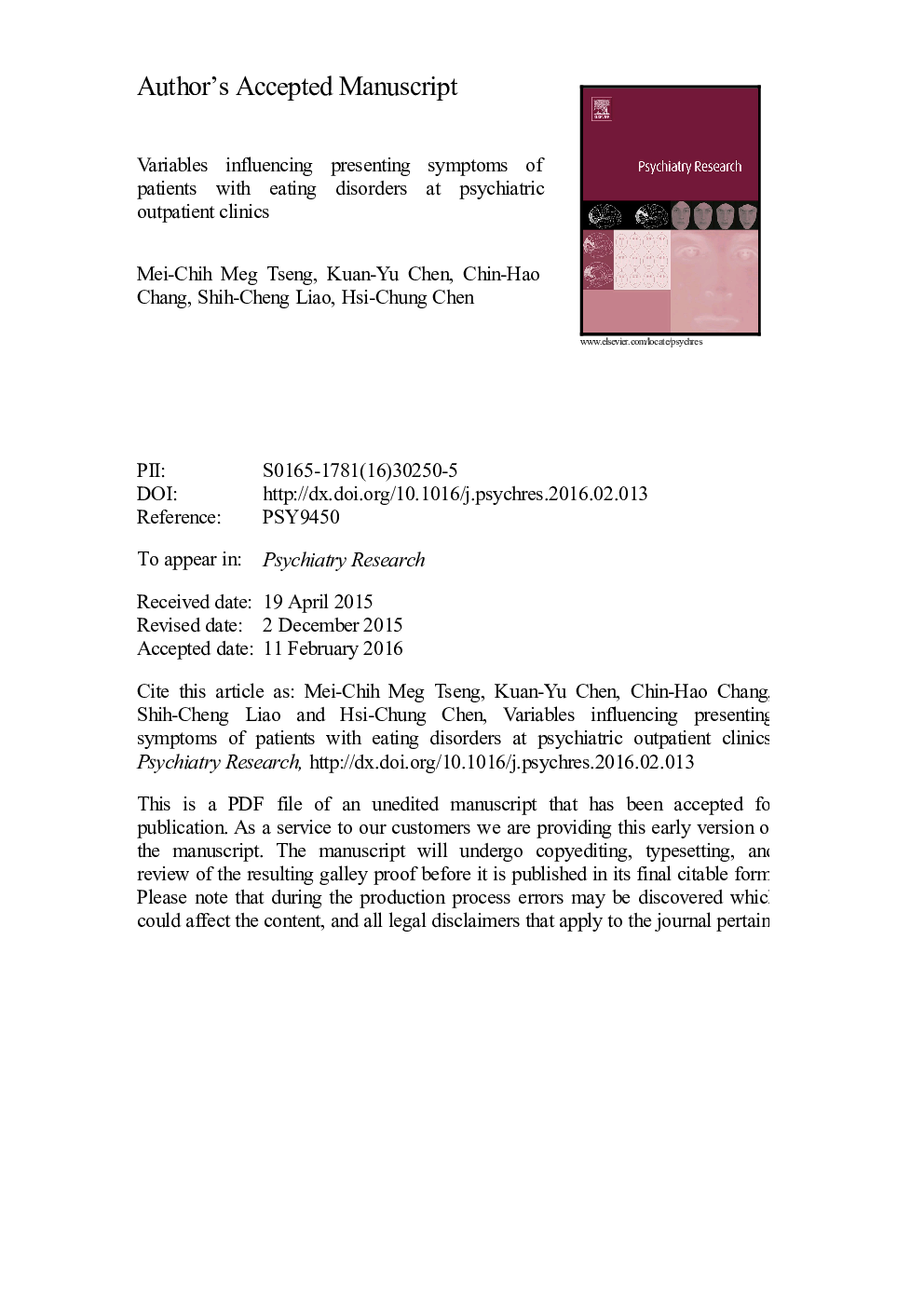| Article ID | Journal | Published Year | Pages | File Type |
|---|---|---|---|---|
| 6813624 | Psychiatry Research | 2016 | 44 Pages |
Abstract
Eating disorders (EDs) have been underdiagnosed in many clinical settings. This study investigates the influence of clinical characteristics on presenting symptoms of patients with EDs. Psychiatric outpatients, aged 18-45, were enrolled sequentially and received a two-phase survey for EDs in August 2010-January 2013. Their primary reasons for seeking psychiatric help were obtained at their first encounter with outpatient psychiatrists. Patients' clinical and demographic characteristics were compared according to presenting symptoms with or without eating/weight problems. Of 2140 patients, 348 (16.3%) were diagnosed with an ED (22.6% of women and 6.3% of men). The three most common reasons for seeking psychiatric help were eating/weight problems (46.0%), emotional problems (41.3%), and sleep disturbances (19.3%). The multivariate analyses suggest that when patients with EDs presented symptoms that were less related to eating/weight problems, they were significantly more likely to be those having diagnoses other than anorexia nervosa or bulimia nervosa and less severe degree of binge-eating. Further, patients with EDs who demonstrated more impulsive behaviors and poorer functioning were less likely to report their eating problems when visiting psychiatric clinics. Thus, ED should be assessed routinely in patients with complex psychopathology to facilitate comprehensive treatment.
Keywords
Related Topics
Life Sciences
Neuroscience
Biological Psychiatry
Authors
Mei-Chih Meg Tseng, Kuan-Yu Chen, Chin-Hao Chang, Shih-Cheng Liao, Hsi-Chung Chen,
